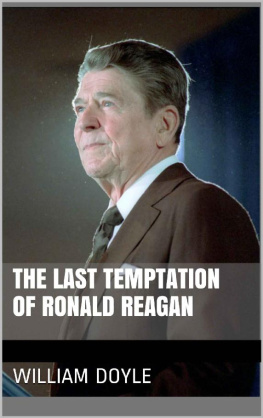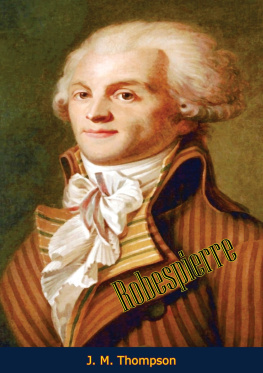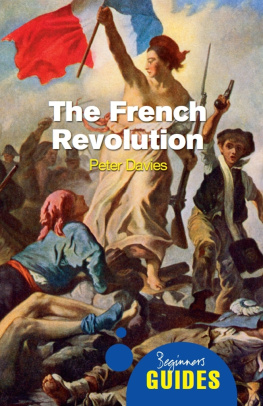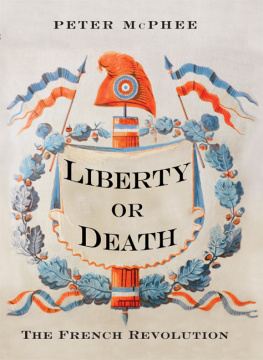THE OXFORD HISTORY OF THE FRENCH REVOLUTION
BY WILLIAM DOYLE
Oxford New York OXFORD UNIVERSITY PRESS
-iii-
Oxford University Press, Great Clarendon Street, Oxford OX2 6DP
Oxford New York
Athens Auckland Bangkok Bogota Buenos Aires Calcutta
Cape Town Chennai Dar es Salaam Delhi Florence Hong Kong Istanbul
Karachi Kuala Lumpur Madrid Melbourne Mexico City Mumbai
Nairobi Paris So Paolo Singapore Taipei Tokyo Toronto Warsaw
and associated companies in
Berlin Ibadan
Oxford is a registered trade mark of Oxford University Press
William Doyle 1989
First published 1989
First issued as an Oxford University Press paperback 1990
All rights reserved. No part of this publication may be reproduced,
stored in a retrieval system, or transmitted, in any form or by any means,
without the prior permission in writing of Oxford University Press.
Within the UK, exceptions are allowed in respect of any fair dealing for the
purpose of research or private study, or criticism or review, as permitted
under the Copyright, Designs and Patents Act, 1988, or in the case of
reprographic reproduction in accordance with the terms of the licences
issued by the Copyright Licensing Agency. Enquiries concerning
reproduction outside these terms and in other countries should be
sent to the Rights Department, Oxford University Press,
at the address above.
This book is sold subject to the condition that it shall not, by way
of trade or otherwise, be lent, re-sold, hired out or otherwise circulated
without the publisher's prior consent in any form of binding or cover
other than that in which it is published and without a similar condition
including this condition being imposed on the subsequent purchaser
British Library Cataloguing in Publication Data
Data available
Library of Congress Cataloging in Publication Data
Doyle, William, 1942
The Oxford history of the French Revolution/by William Doyle.
p. cm Includes bibliographical references.
1 France--History--Revolution, 1789-1799. 2. Europe--History--1789-1815. I. Title.
944.04--dc20 [DCld8.D69 1990] 90-6742
ISBN 0-19-285221-3
15 17 19 20 18 16 14
Printed in Great Britain by
Cox & Wyman Ltd,
Reading, Berkshire
-iv-
From Number Six
-v-
[This page intentionally left blank.] | -vi- |
|
Contents
|
| 1. France under Louis XVI |
|
|
| 3. Crisis and Collapse, 1776-1788 |
|
| 4. The Estates-General, September 1788-July 1789 |
|
| 5. The Principles of 1789 and the Reform of France |
|
6. The Breakdown of the Revolutionary Consensus,
1790-1791 |
|
| 7. Europe and the Revolution, 1788-1791 |
|
| 8. The Republican Revolution, October 1791-January 1793 |
|
| 9. War against Europe, 1792-1797 |
|
| 10. The Revolt of the Provinces |
|
| 11. Government by Terror, 1793-1794 |
|
|
| 13. Cclunter-Revolution, 1789-1795 |
|
| 14. The Directory, 1795-1799 |
|
| 15. Occupied Europe, 1794-1799 |
|
| 16. An End to Revolution, 1799-1802 |
|
| 17. The Revolution in Perspective |
|
|
|
| 1. Chronology of the French Revolution |
|
| 2. The Revolutionary Calendar |
|
|
|
-vii-
[This page intentionally left blank.] | -viii- |
|
List of Maps
1. Pre-revolutionary France: principal administrative, judicial,
and fiscal subdivisions |
|
| 2. The departments of revolutionary France |
|
3. Revolutionary Paris: the sections and main places and
streets mentioned in the text |
|
| 4. Resistance to the Revolution, 1793-1799 |
|
| 5. The expansion of revolutionary France |
|
-ix-
[This page intentionally left blank.] | -x- |
|
Le mal de changer est-il toujours moins grand que le mal de souffrir?
Montesquieu, De l'esprit des lois, bk. XXIX, ch. XVIII
-xi-
[This page intentionally left blank.] | -xii- |
|
France under Louis XVI
THE king of France needed no coronation. He reigned by the grace of God from the moment his predecessor breathed his last, and a coronation was purely customary. So the argument was heard, even in the highest circles, that the elaborate consecration of Louis XVI, arranged for 11 June 1775 in the traditional setting of Rheims cathedral, was a waste of public money. A month beforehand, the countryside around Paris, and many districts of the city, had been shaken by rioting against high flour and bread prices. The disturbances led to talk of postponing the ceremony, and the approaches to Rheims were ringed with precautionary troops. And far fewer people than expected made the journey to the capital of Champagne to witness the historic spectacle. Innkeepers complained of unlet rooms, and caterers of wasted supplies. But when, that brilliant morning, the cathedral doors were flung open to reveal the young monarch crowned and enthroned in glory, invested with the sceptre of Charlemagne and anointed with the holy oil of Clovis, men broke down and wept despite themselves.
The son of St Louis, the Most Christian King of France and Navarre, had sworn that day to uphold the peace of the Church, prevent disorder, impose justice, exterminate heretics, maintain forever the prerogatives of the Order of the Holy Spirit, and pardon no duellist. Three days later, in the summer heat, he ritually touched 2,400 stinking sufferers from scrofula, the disfiguring disease believed by countless generations to be curable through the miraculous touch of an anointed king. And all this still left him time to write letters to his 74-year-old chief minister, who had remained at Versailles; and to resist the attempts of an empty-headed queen to have her favourites given office. Court intrigues could not be expected to stop merely because the king was being crowned. And so the ceremonies that Louis XVI observed that week, the motions he went through, were a strange blend of momentous and trivial, significant and purely formal, meaningful and empty. The powers he exercised, the promises he made, the regalia he wore, all resulted from a long, tortuous, and often haphazard evolution.












